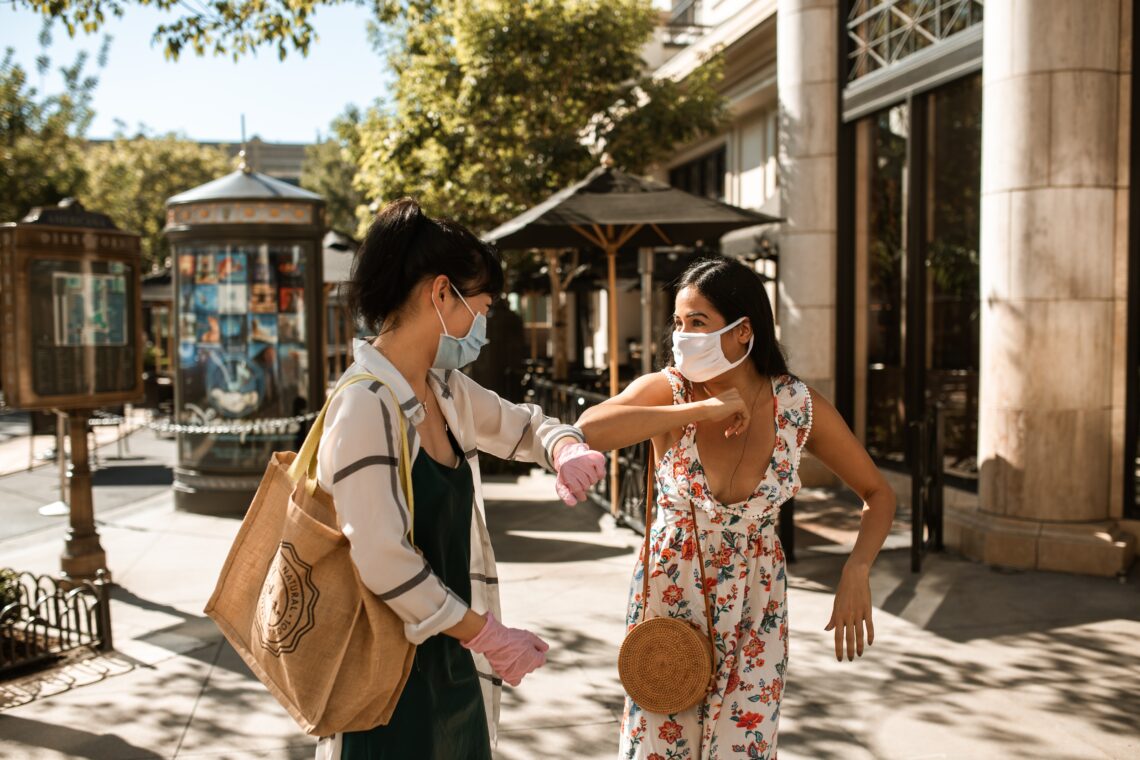
The return to “normal”
Lockdown restrictions are easing, more Canadians are becoming fully vaccinated, non-essential services are reopening and gradually, people are meeting each other in person after being isolated since March 2020. For the first time in a while, lockdown measures are not being extended by another two weeks. There is finally a sense of hope.
Recent University of Toronto graduate Nievana Judisthir is excited to start her life again and is already making plans to transition into post-pandemic life. Her main goals are to attend Centennial College’s human resources program and to travel to the United States.
“I’m excited to get my life back on track. I want to meet new people and I want to learn. I just want my life to go back to how it was before because I took life for granted when I had it.”
At the same time, Judisthir admits that while she is excited for the return to in person events, as a recent graduate she is terrified. “Now it’s about looking for a job in an environment that is just getting back on track, and in a job market that has hit rock bottom.”
Judisthir says she has lost the passionate social drive that she used to have before lockdown life. After about two years communicating through emojis, acronyms and delayed responses, Judisthir is worried about how she will navigate a job with face-to-face conversations in the real world again.
“I’m a social butterfly and I thrive off being with people, but 20 minutes into being with people that I’ve known for years was draining for me,” she says. “Now that my social life has changed drastically it’s difficult to know how to function with others again.”
Judisthir is not alone. In a web survey, 52 per cent of Canadians ages 18 to 24 reported feelings of unease towards reopening. This suggests that youth are one of the most affected generations from the pandemic.
At a time when large transformations are supposed to be made in terms of health, identity, education and career planning, a sudden return to “normal” when young people have been interrupted from these processes can feel not so normal at all.
Ryerson University student Sze Yan Lau says that for her, feelings of normalcy will not come back. At least not for a while.
“I prefer to adapt to change really slowly, and I feel like with almost two years being in my bubble, I don’t know if I’m ready to deal with people again,” she says. “Along with my social anxiety, I have to adjust with going back to campus, using a crowded TTC system and learning how to deal with people in person while keeping a face mask [on].”
Lau notes that she has picked up new mannerisms since the beginning of the pandemic that she will have to be conscious of now. “In this sense, there won’t be a return to pre-pandemic life. These adjustments will become the new normal,” she says.
Transitioning one step at a time
Rebecca Loucke shares that feeling of anxiety as a psychotherapist herself for Beaches Therapy Group Toronto. Transitioning from in-person therapy to virtual isolation and back will be difficult. But she explains that this reaction to change is completely natural.
“The way that I go about that [transitioning] in not only my professional life but my personal life is that I like to pace myself so that the transition is gradual and that I’m not overloading myself with too much at once,” she says. “Socializing is a skillset that requires a lot of energy that we tend to take for granted. I find that [pacing] builds me up a little bit.”
As for socializing, she has not felt too isolated.
“I’m so busy working with clients that I get energized interacting with them. But as a human, I have boundaries, too.”
Pandemic or not, Loucke advises learning to acknowledge social limits and restricting social media as a temptation for life comparison.
“The number one thing that people need to understand is that they are a person of their social context,” she says. “People need to know they are never alone in their experiences.”
Optimistic futures
Despite their anxieties about returning to an in-person society, Judisthir and Lau have great goals ahead of them to achieve at their own pace.
Judishir hopes to take many of the positive habits she developed during the pandemic onwards. She will be spending her time exploring old creative interests and making up for lost travel time that was not possible as a student.
For Lau, the pandemic reinforced her interest in the mental health field even more. As an aspiring psychotherapist with passions for ending the stigma of mental disorders among Chinese communities, she will continue to use her time to volunteer to help those most affected by isolation. But for now, she looks forward to enjoying having people around her again.
“Even the sensation of holding a door for someone or walking freely around the mall are experiences I look forward to feeling,” says Lau. “The pandemic has made me realize that it’s truly the small parts of daily life that matter.”
About the author
Rebecca Benitez-Berona is a reporter at Youth Mind. She is passionate about social justice, creative writing, reading poetry and youth mental health. When she is not writing, she is exploring nature or trying out yet another new bubble tea shop.







